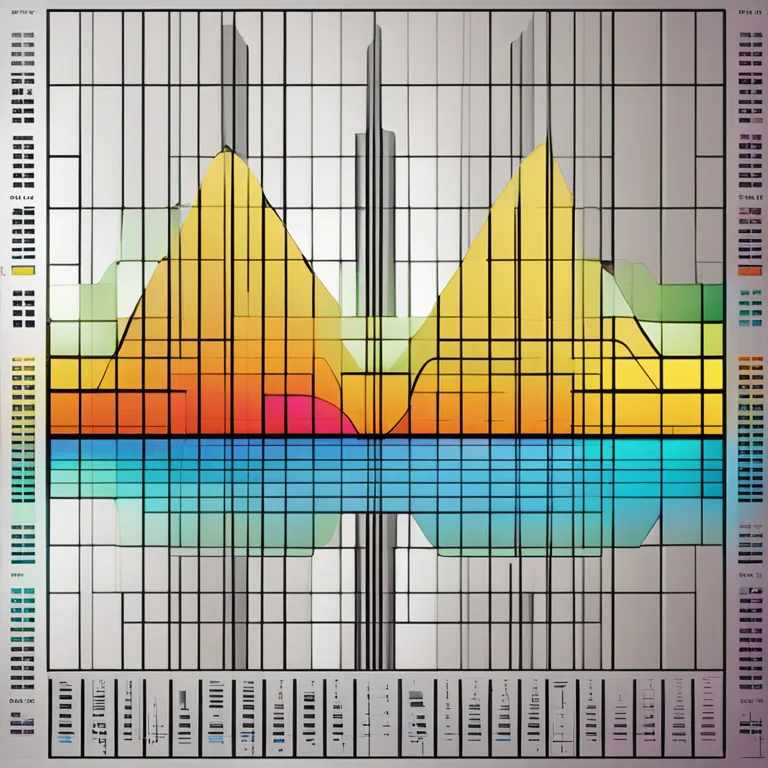
The Science of Biorhythms: Biological Cycles & Their Influence
Discover how biorhythms affect human life, the science behind them, and how they influence physical, emotional, and intellectual states.
article by Adrian Wallace
Introduction to Biorhythms
Biorhythms are considered to be the natural cycles that govern human physiology and behavior. The term itself stems from the Greek words 'bios' (life) and 'rhythmos' (rhythm). Proponents of biorhythm theory believe that our daily lives are significantly influenced by rhythmic cycles. This concept has piqued the interest of many eager to understand the role these cycles play in their lives. Although scientific consensus on their applicability in predicting daily performance fluctuates, the interest in biorhythms continues into 2024 and beyond, as individuals seek personalized insights into their well-being.

The Biorhythmic Cycles
Generally, biorhythms are categorized into three fundamental cycles: physical, emotional, and intellectual. The physical cycle, lasting 23 days, influences one's strength, health, and endurance. The emotional cycle, with a duration of 28 days, pertains to moods, sentiments, and creativity. Finally, the intellectual cycle, which completes its loop in 33 days, affects analytical thinking, learning ability, and communication. By charting these cycles, enthusiasts believe individuals can anticipate their peaks and troughs in each of these areas to optimize their daily activities.

Calculating Biorhythms
Biorhythm calculators, which have become increasingly sophisticated by 2024, rely on mathematical algorithms that use a person's birth date as a baseline. Starting from this point, the calculator projects the highs, lows, and critical phases of one's cycles. Critical days are transitions between high and low periods, where individuals are purportedly more prone to making errors or facing challenges. Although the accuracy of biorhythms is often debated, there is an enduring fascination with how these cycles might guide decision-making.

The Skeptical Perspective
It's imperative to include the skeptical viewpoint in any rigorous discussion of biorhythms. While the concept has myriad followers, the scientific community remains unconvinced of the predictive power of biorhythms. Numerous studies have failed to find strong evidence supporting the correlation between biorhythmic patterns and an individual's performance or well-being. Critics argue that biorhythm theory often lacks empirical support and may fall under the umbrella of pseudoscience. However, as with many fields of alternative knowledge, the debate continues, and research is ongoing.

Biorhythms in Modern Life
In our age of personalized data and wellness trends, biorhythms have found new life through apps and online services. As we move through 2024, the union of biorhythm theory with AI and big data has given individuals more tools to track and analyze their cycles. This integration potentially offers more nuanced insights, albeit with the same cautionary advisories regarding their efficacy. For some, these insights are an exciting way to synchronize with their innate rhythms, whether planning their activities or understanding their interpersonal relationships.
The Way Forward with Biorhythms
The biorhythm industry continues to evolve, with newer generations of trackers that promise integration with other health markers. Innovators are exploring the synchronization of biorhythm data with other physiological and psychological indicators such as heart rate variability and sleep patterns. The goal is to build a more comprehensive system to assist individuals in managing their health and decisions. While definitive results may be elusive, the journey of understanding one's biological rhythms captures the imagination and speaks to a deep-rooted desire for self-knowledge and optimization.
Published: 12/28/2023
Modified: 12/28/2023
More predictions
Come back here soon to learn more about yourself and your future


Biorhythm Compatibility & Birthdays
Discover the intriguing connection between your birthday biorhythms and relationship harmony in our insightful article.


Navigating Biorhythm Cycles
Explore the concept of biorhythms, their cycles, and examples of how they influence our daily lives.


The Reality Of Biorhythm Compatibility
Unravel the truth behind biorhythm compatibility and its role in personal relationships and daily life.